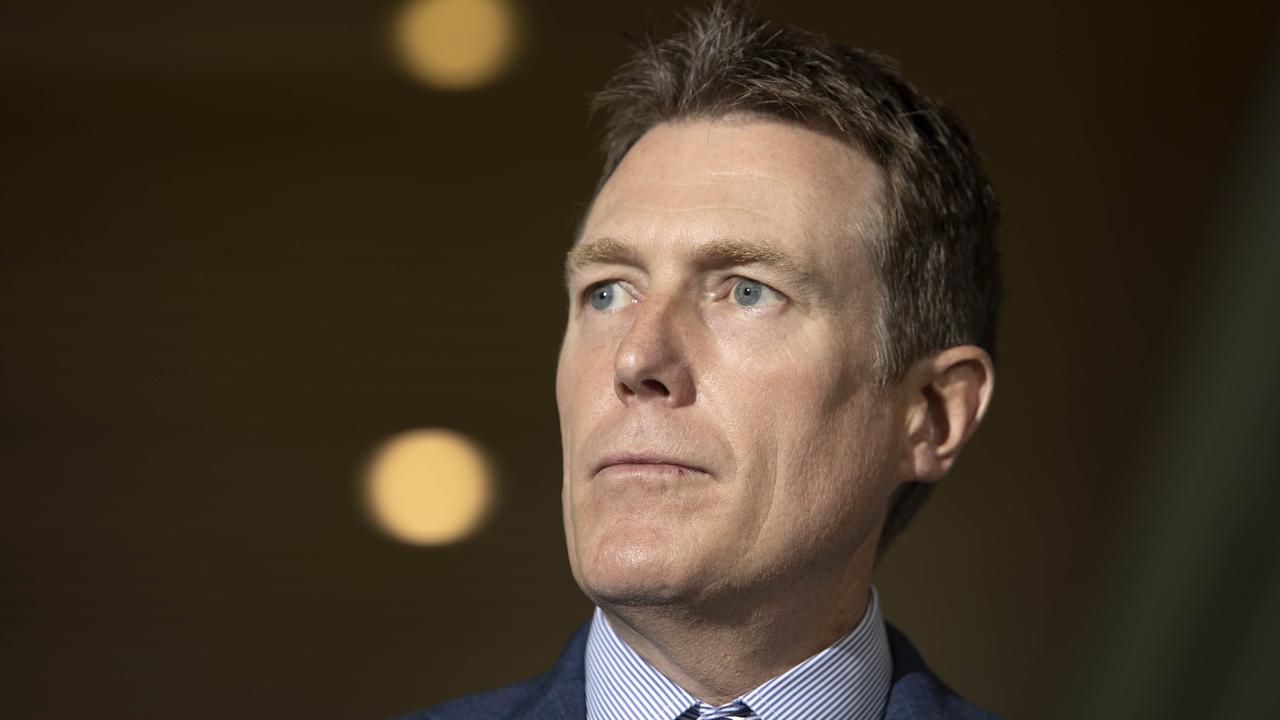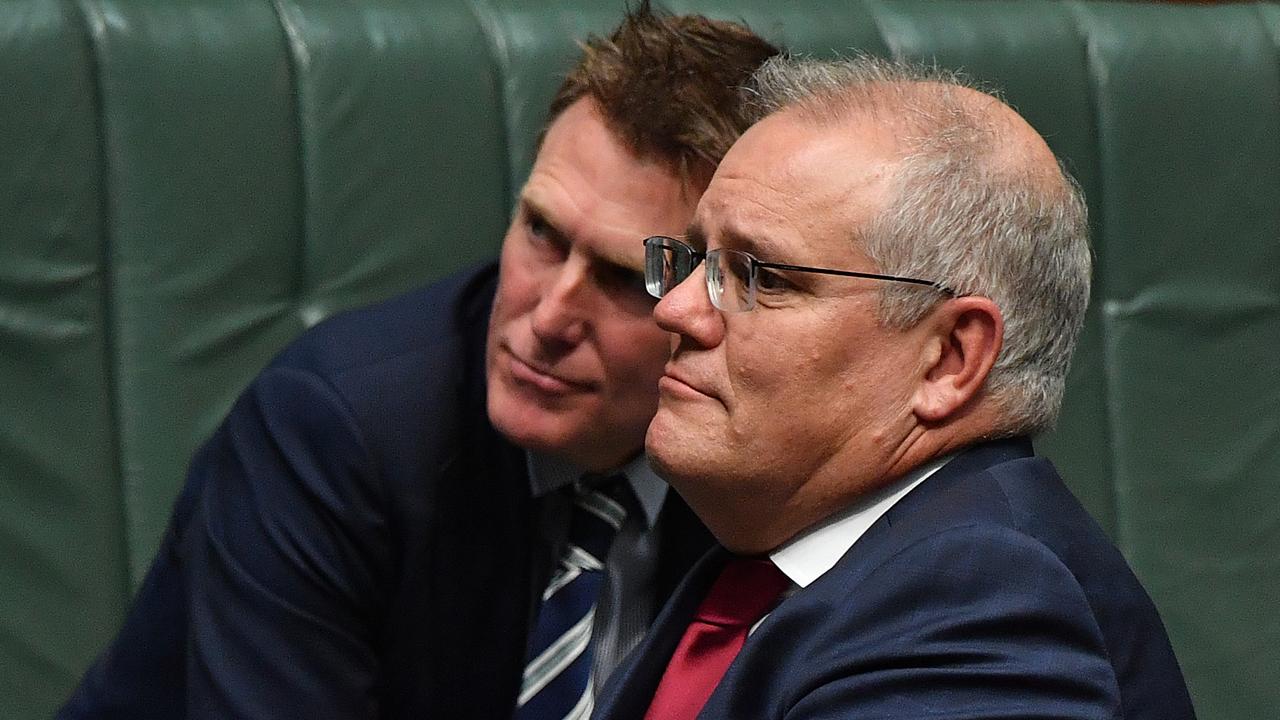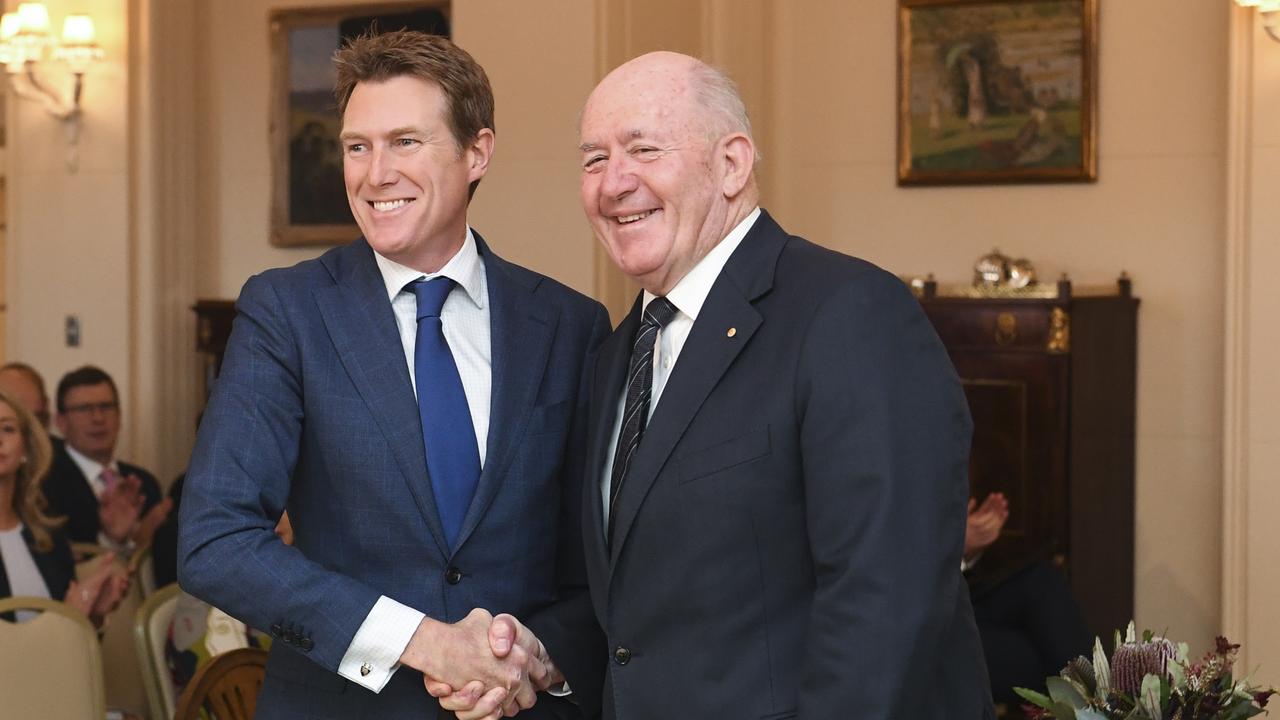Christian Porter: Who is the cabinet minister, what does he do, wife and family details
Christian Porter is one of Australia’s most powerful politicians, with his multiple roles putting him at the centre of the Morrison Government.
Christian Porter is one of Australia’s most powerful politicians, with his multiple roles putting him at the centre of the Federal Government.
Mr Porter serves as Attorney-General, Leader of the House and Minister for Industrial Relations – and for years has been described as a future prime minister of Australia.
Mr Porter today revealed he is the man at the centre of a historical rape allegation involving a 16-year-old girl in Sydney in 1988, an allegation he emphatically denies.
Mr Porter made the statement after consulting defamation lawyers. He told reporters that the “only thing I am ever going to be able to say, and it’s the truth, is that nothing in the allegations happened”.
The woman was an award-winning debater who met him when she represented South Australia on a state debating team as a teenager. In an unsworn statement she claimed the incident happened in 1988 after a night of drinking and dancing in Kings Cross.
At the time, she was 16 years old. Mr Porter was 17.
Mr Porter also confirmed he would not be stepping down from his role as Australia’s chief legal officer.
“My guess is if I were to resign and that set a new standard there wouldn’t be much need for an Attorney-General anyway because there would be no rule of law left in this country,” he said.
“And I am sure you will ask and I will state to you, I am not standing down or aside.”
RELATED: Photo of alleged teen victim with Minister

WHO IS CHRISTIAN PORTER?
Christian Porter is Australia’s Attorney-General, Leader of the House of Representatives and Minister for Industrial Relations.
The 50-year-old Cabinet Minister and separated father-of-two previously served as Parliamentary Secretary to then-Prime Minister Tony Abbott in 2014 and replaced Scott Morrison as Minister for Social Services under Malcolm Turnbull in 2015.
Born and raised in Western Australia, Mr Porter’s father, Charles “Chilla” Porter was director of the WA division of the Liberal Party for two decades, while his grandfather, Sir Charles Porter, was a Liberal Minister when Sir John Bjelke-Petersen ruled Queensland.
Prior to winning the seat of Pearce in the 2013 Federal Election, Mr Porter served as a Minister in the West Australian Government, holding roles such as Attorney-General, State Treasurer and Minister for Corrective Services.
Mr Porter shares two children with his second wife, Jennifer Negus, with the couple announcing their separation last January.
RELATED: Why police won’t get justice in alleged rape


WHAT DOES THE ATTORNEY-GENERAL DO?
Mr Porter is Australia’s 37th Attorney-General, a role appointed by the Governor-General on the advice of the Prime Minister to serve as First Law Officer of the Crown, chief law officer of the Commonwealth of Australia and a Minister of the state.
What this means, basically, is that Mr Porter is the chief legal adviser to the Cabinet and the Federal Government. He was sworn in on December 20 2017 by Governor-general Sir Peter Cosgrove.
According to the Attorney-General’s Department, the Attorney-General is responsible for:
• Law and justice
• National security
• Legal services
• Courts and tribunals
• Regulatory reform
• Management of government records.
A recent example of the Attorney-General’s role was the merging of the Family Court of Australia (which handles child custody and domestic violence disputes) with the general Federal Circuit Court – the decision and implementation of which is the responsibility of Mr Porter’s department.
HOW SIGNIFICANT IS THE ROLE OF ATTORNEY-GENERAL?
The Attorney-General does have substantial power – with the ability to shape what the judicial system looks like and how it works.
Mr Porter also has the power to recommend judges to be appointed at both federal and state-level courts, and represents the Federal Government in national and international legal cases.
It is worth noting, however, that the role isn’t so powerful that they can single-handedly make changes to the courts or legislation – any decisions they make requires the support of other MPs and government functions.
- with Samantha Maiden




